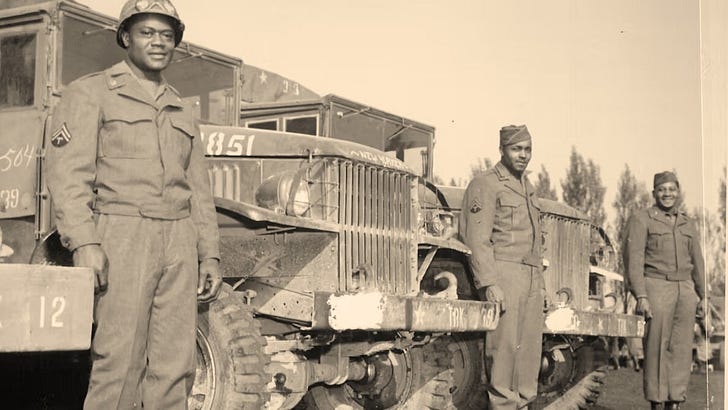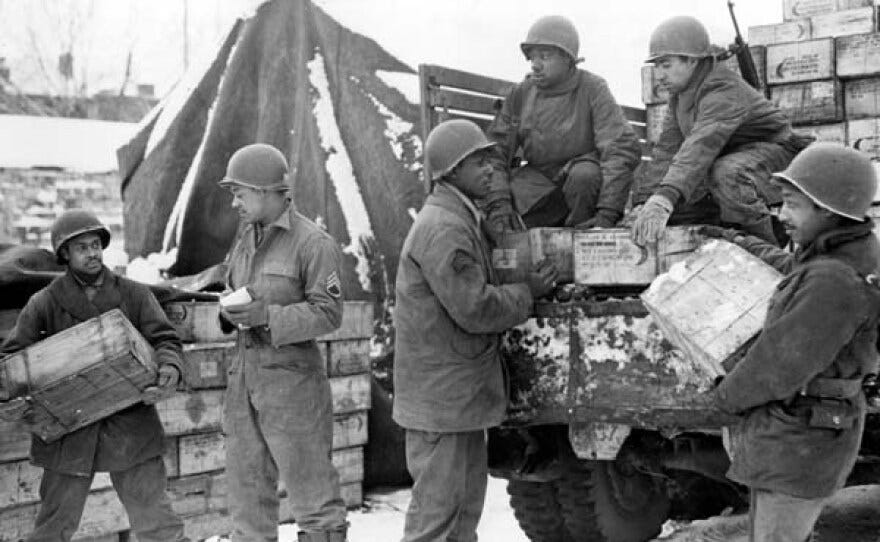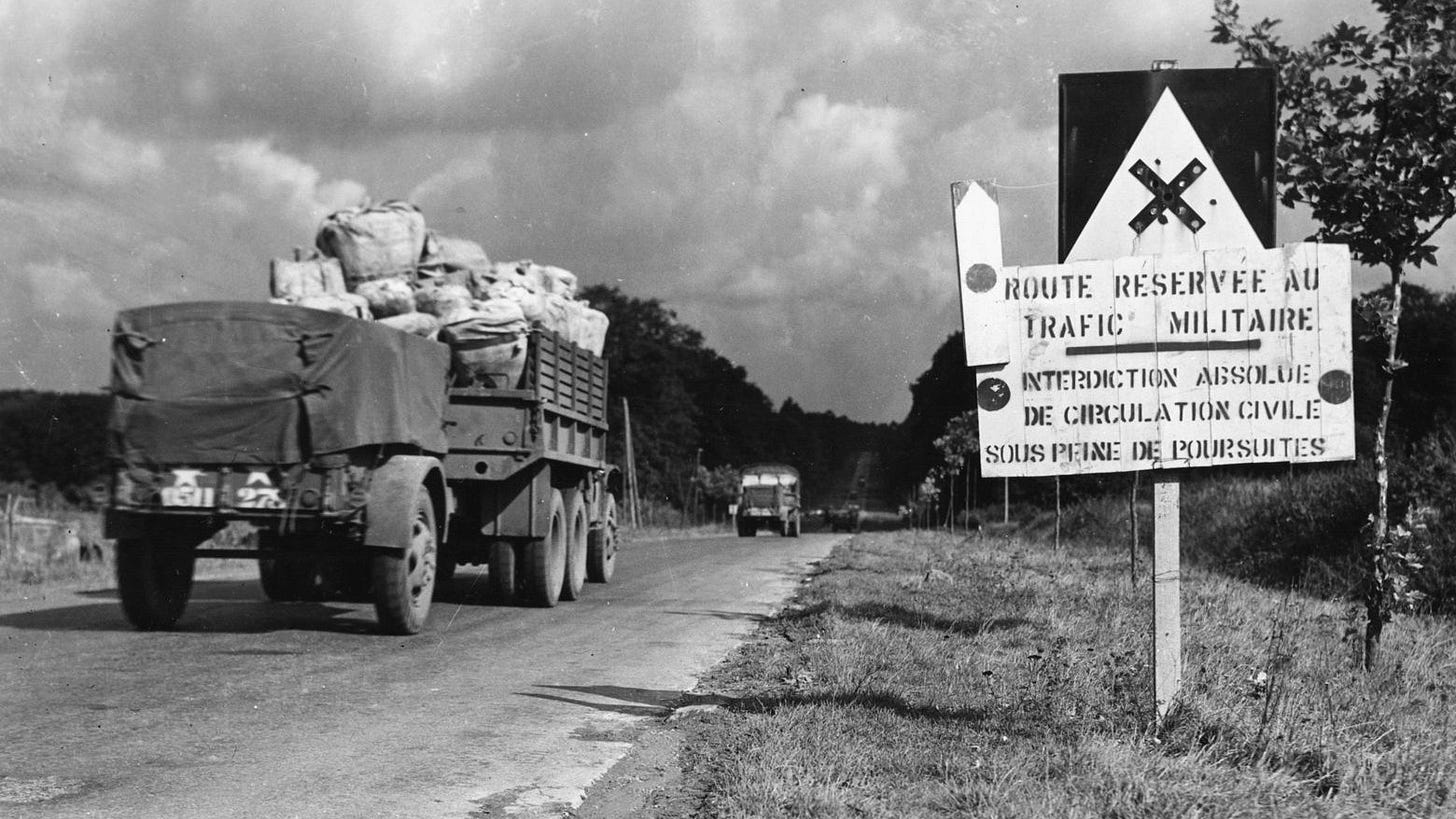In the fading echoes of the decisive Allied invasion of Normandy in June 1944, a new crisis quietly unfolded just beyond the headlines of frontline victories. General George Patton and his Third Army had pushed into occupied France, yet their courage and ambition quickly outpacing their logistical capabilities.
Pre-assault bombings had already devastated French rail networks, while retreating German forces had rendered key ports unusable, following Hitler’s ruthless orders to sabotage Allies' advances. For Patton’s troops, the victories brought a looming disaster: they were on the brink of running critically low on ammunition, gasoline, and food.
At this precarious moment, necessity birthed innovation. After a frantic, intense 36-hour brainstorming session in late August, American military commanders unveiled their emergency solution: the Red Ball Express. Drawing its name from old railroad slang meaning “priority freight,” the Express’s mission was clear but daunting—deliver desperately needed supplies, day and night, to troops fighting their way through liberated France.
Launched officially on August 25, 1944, the Red Ball Express quickly became a relentless lifeline. Miles upon miles of highways and dirt roads winding across war-torn France were marked with glaring red symbols, creating a clear, unending loop linking Normandy’s distant supply depots to beleaguered soldiers at the front. The project was colossal—at its peak, nearly 6,000 trucks operated day and night, with drivers taking provisions from Cherbourg all the way inland, to towns such as Chartres, Soissons, Sommesous, and Arcis-sur-Aube. They dropped their cargo, turned back via carefully coordinated southern routes, and immediately prepared for another harrowing run.
At the heart of this demanding and dangerous assignment was a group largely unheralded by history: Black soldiers. Despite enlistment policies confining them primarily to non-combat support roles—due to open racism and segregation—the men who drove, repaired, and maintained the trucks formed nearly 75 percent of the Red Ball Express operations. Without their labor, dedication, and bravery, the spectacular Allied advances into Europe might have faltered or even failed.
Corporal James Rookard later recounted the relentless pace and danger, remarking:
"We hauled night and day. We drove those trucks 20 to 22 hours straight sometimes, no sleep. You’d fall asleep at the wheel. And there were times we had to drive with no lights, following a little white strip painted on the truck bumper ahead. You lose sight of that, and you might end up lost or even worse."
His words offer chilling evidence of the daily peril that these men willingly faced while being barred from equal privileges within the very army they courageously supported.
Driving vehicles designed only for cautious speeds of about 25 mph, the drivers routinely disabled the governors installed on their workhorse "Deuce-and-a-Half" trucks; trucks not built for speed barreled down poorly maintained roads in overloaded conditions at up to 60 mph, constantly risking breakdown, accidents, or enemy attack. They adopted a fitting unofficial slogan that spoke to their reckless courage and stubborn determination:
"Red Ball trucks break, but don't brake."
Yet behind these extraordinary stories of dedication and courage lay a persistent and shameful contradiction. Despite tirelessly serving in roles essential to the war effort, these Black soldiers confronted daily reminders of their second-class status. The Army enforced strict segregation—isolating them in separate barracks, mess halls, and recreational facilities. Many Black servicemen recalled bitter moments of indignity, being denied entry to canteens or stores reserved solely for white personnel; injustices amplified painfully even amid their remarkable sacrifices.
Corporal James Rookard remembered clearly the bitter irony of his experience:
“The army was segregated, and you'd come back home after serving your country, after delivering supplies that kept the fronts moving, and you’d still have to sit in the back of the bus.”
Despite facing regular prejudice and discrimination from white counterparts and civilians alike, these soldiers created an unbreakable bond forged through adversity. They became a family, finding strength and determination in each other’s shared struggle for dignity. Many drew inspiration, paving the way toward equality in an unyielding hope that their contributions would finally force America to see the injustice of segregation.
Colonel John S. D. Eisenhower, himself recognized their indisputable contribution, remarking years after the war:
"No civilian or soldier can understand just how much the Red Ball drivers contributed... Without them, victory would have been impossible."
The grand numbers themselves told a remarkable story: by the time the operation concluded after 81 astounding days on November 16, 1944, the Express had delivered an astonishing 412,000 tons of vital supplies, averaging over 5,000 tons every single day. Yet even such impressive statistics fail to capture the human spirit and courage underlying these achievements.
Sadly, recognition of this heroic feat during wartime was scarce, overshadowed by tales of frontline combat. Though the Army Transportation Corps issued a tribute patch, there were no medals specifically honoring their extraordinary courage under fire. This omission underscored a broader invisibility that so many Black soldiers faced, heroes behind the headlines largely erased from mainstream wartime memory.
Still today, the story of the predominantly Black drivers of the Red Ball Express stirs powerful reflections on race, service, and sacrifice. The Express marked more than a logistical triumph; it served as a poignant precursor to calls for desegregation and equality, demonstrating beyond debate the patriotism, bravery, and extraordinary capabilities of Black Americans even under the cruelest restrictions and prejudice.
These unsung heroes not only ensured victory on distant European battlefields—they set a powerful foundation for civil rights battles yet to come. Their resilience and courage remain worthy of reflection and commemoration, lessons relevant still in our continuing quest for dignity and equality.
If you enjoy audio-only episodes, check us out wherever you get your podcasts. Also subscribe to our Youtube Channel:
















Share this post